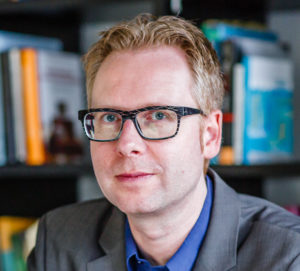Memory Traces for Stressful and Traumatic Events
Memory Traces for Stressful and Traumatic Events

5 p.m. in Europe (CET)
Please click here to view the video of this event.
This webinar will be approximately two hours long.
Start time in selected time zones
Memories help us anticipate the future and are core constituents of our identities. However, we may also “suffer from reminiscences” of past experiences and can be haunted by traumatic events. How we remember our past may thus substantially affect our wellbeing and can contribute to various psychiatric diseases, most obviously posttraumatic stress disorder. Research in the cognitive neurosciences may help shed light on these processes. In this talk, I will describe new evidence on the characteristic features of memory traces for stressful and traumatic experiences. These studies show that memories are critically determined not only by the remembered events themselves – what we remember – but also by how we remember them. I will then discuss whether memory traces can be intentionally suppressed, whether this leads to an actual removal of a memory trace or its transformation, and whether such voluntary memory suppression is related to the psychodynamic process of repression.
Bio
Nikolai Axmacher, M.D. Ph.D., studied philosophy and medicine at Berlin and Paris, and is now Professor of Neuropsychology at the Ruhr University Bochum, Germany. His work explores the neural foundations of memory functions and dysfunctions using cognitive neuroscience methods, with a particular interest in the representation and transformation of specific experiences. He investigates a wide range of memory processes, from working and long-term memory, to memory consolidation during resting state and sleep, autobiographical memory, and repression. His research addresses questions such as: How are experiences represented in the brain and transformed into memory traces? How do these experiences shape our Self? and How is memory compromised by trauma, inner psychic conflicts and Alzheimer’s dementia? His neuropsychoanalysis-related work investigates the neural mechanisms underlying repression and transference, and includes studies on sleep and dreaming.
CPD credits: 2
(Please click here for further information regarding CPD credits.)